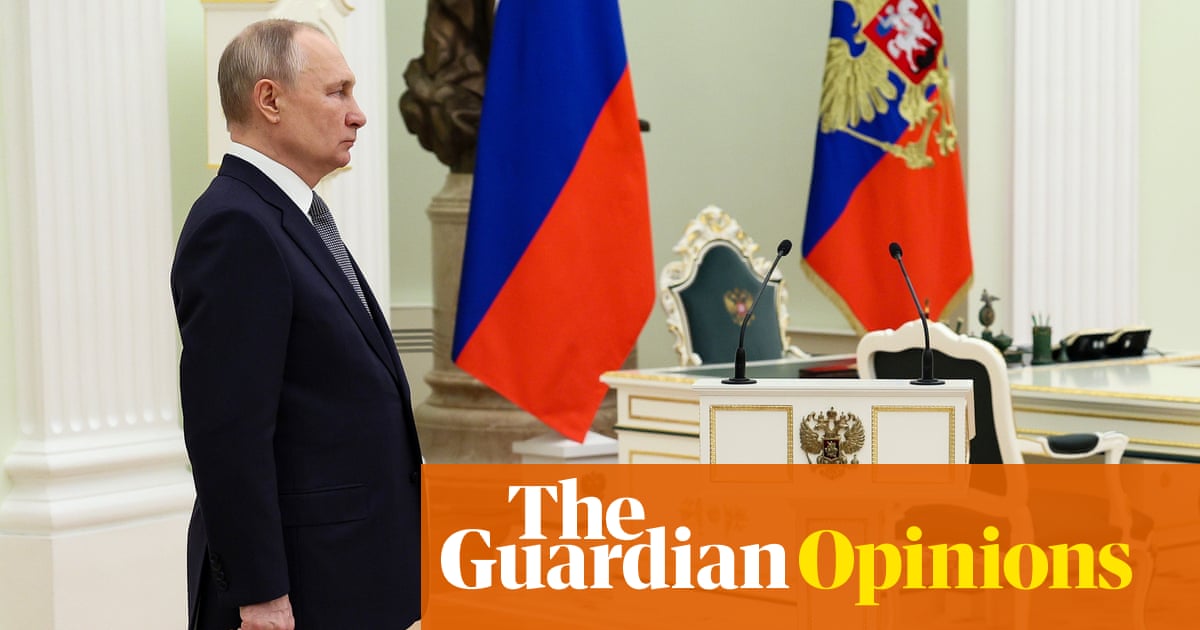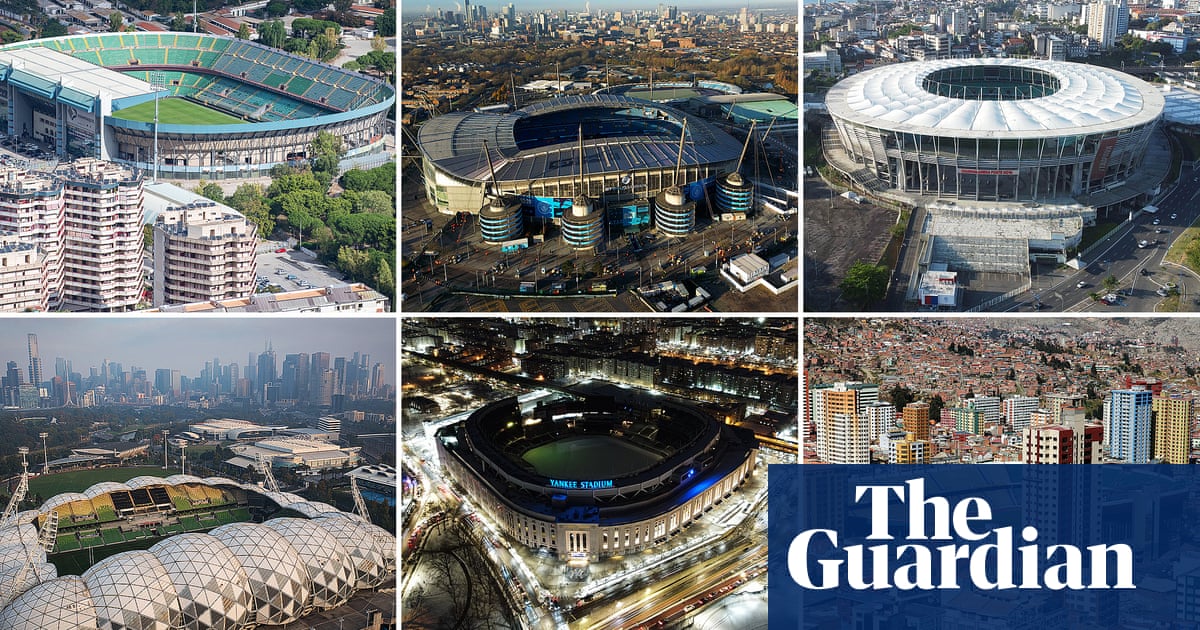
“It was 5am,” says Veronika Rakitina, “and I woke up to the sound of a bomb. I looked at the news and the first thing I saw was a burning church next to my parents’ house in Kharkiv.” The Ukrainian dancer is remembering the morning of the Russian invasion. On her phone, she pulls up a photo of a four-storey building with its top two floors blown out. “And here,” she says, pointing to the first floor, “is my grandparents’ apartment. They were inside – they were just lucky.”
Rakitina’s husband, fellow dancer Vladyslav Detiuchenko, travelled from Kyiv to his parents in Kremenchuk, where the Russians bombed a shopping mall 200 metres from their home. “In the house now there are no windows,” he says. “Me and my brother saw the rocket. We heard the explosion and got down on the floor – then we just started running.”
Everyone here has a story like this, but it feels as if they’re describing a movie plot because the surroundings couldn’t be calmer. We’re in the Hague, where the city’s former music and dance conservatoire has become a home for Ukrainian refugees – including a new company of ballet dancers. Offices and classrooms have been turned into makeshift bedrooms. In a studio down the corridor, dancers go through the familiar ritual of daily ballet class – reassuringly the same the world over, except some of the faces look tired and tense and distracted.
The United Ukrainian Ballet came about back in February when two young Ukrainians were dancing in a show in the Netherlands with Dutch ballerina Igone de Jongh. Stanislav Olshanskyi recalls going on stage the day after the invasion. “You’re dancing but you don’t feel your body,” he says. “I remember doing a cabriole and being in the air thinking, ‘What is happening there now? How are my friends?’” Finding the dancers in tears in the dressing room, the show’s producers pledged to help, joining forces with world-leading choreographer Alexei Ratmansky to create a haven for dancers and produce a new version of the ballet Giselle for a week-long run at London’s Coliseum next month.
Born in St Petersburg, Ratmansky spent his childhood in Kyiv, trained in Moscow, danced with the Ukrainian National Ballet as well as in Canada and Denmark, and later became artistic director at Moscow’s Bolshoi Ballet. (He’s now based in the US.) He was choreographing at the Bolshoi when war broke out, but left immediately and has been outspoken about the invasion ever since. People he considered friends have not condemned the war. “Disappointed is not the right word,” he says of them. “I’m heartbroken. Because I have to cut them off. How can a sane person support the war? It’s just beyond me.”
Ratmansky’s wife, Tatiana, has some family in Russia. “They say, ‘Wait a little bit, you’ll be free, you’ll be with us. You just need to suffer a little bit.’ Can you imagine?” Meanwhile Tatiana’s father is in Kyiv. He’s in his 90s and can’t walk to the bomb shelter. “So the air sirens go and they just sit there and wait.” Ratmanksy can’t believe it’s come to this. “When the war started, I thought: ‘Well, now millions of Russians will go out into the streets and stop it. That’s the end of Putin.’ And nothing happened. I thought, ‘NATO, the UN, will stop it.’ And nothing happens.”
Ratmansky is full of quiet fury and disbelief, but in the studio he is calm and measured – “like a psychologist”, says one dancer – as he insists on steps being repeated again and again. “Alexei is a perfectionist. Every detail of the arms, head, fingers, eyelashes,” says Vladimir Malakhov, a former star of American Ballet Theatre, and fellow Ukrainian, who has come to pull the dancers into shape. This Giselle is based on Ratmansky’s 2019 staging, made after an in-depth study of early historical sources, but it’s tweaked for this company and has different sets and costumes that have been donated by Birmingham Royal Ballet.
The dancers are safe here: they have been given special dispensation to leave Ukraine (President Zelenskiy’s wife Olena has been involved) and they’re engrossed in their work. “But at the same time,” says Rakitina, “I wake up with news that a bomb came into this city or that city. Every time, it’s like cold water poured on you.” When she closes her eyes she sees bombs falling. If a plane flies overhead, she flinches. She and all the dancers are worried that Ukraine is slipping down the news agenda: through performing, they want to remind people the war is still going on.
For Ratmansky, it is not only a national tragedy but also a personal crisis. “My identity is really broken,” he says, “and I need to find a way to glue it all back together.” Even remembering happy times at the Bolshoi is painful. “The people I loved working with so much, they have betrayed the humanity of our art.” But there are shards of hope for the besieged country. “There has been a renaissance of politics, identity, culture – and ballet. Ukraine has never been so united.”
The United Ukrainian Ballet’s Giselle is at the London Coliseum, 13 to 17 September












